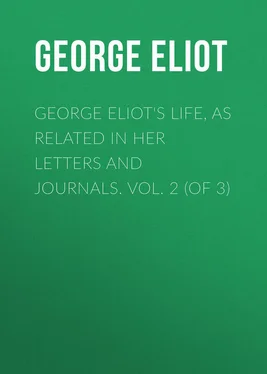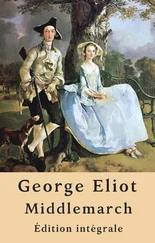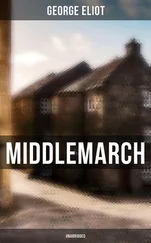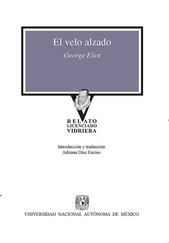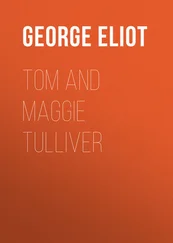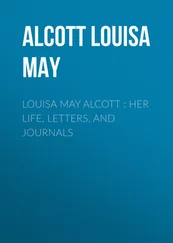George Eliot - George Eliot's Life, as Related in Her Letters and Journals. Vol. 2 (of 3)
Здесь есть возможность читать онлайн «George Eliot - George Eliot's Life, as Related in Her Letters and Journals. Vol. 2 (of 3)» — ознакомительный отрывок электронной книги совершенно бесплатно, а после прочтения отрывка купить полную версию. В некоторых случаях можно слушать аудио, скачать через торрент в формате fb2 и присутствует краткое содержание. Издательство: Иностранный паблик, Жанр: literature_19, foreign_antique, foreign_prose, на английском языке. Описание произведения, (предисловие) а так же отзывы посетителей доступны на портале библиотеки ЛибКат.
- Название:George Eliot's Life, as Related in Her Letters and Journals. Vol. 2 (of 3)
- Автор:
- Издательство:Иностранный паблик
- Жанр:
- Год:неизвестен
- ISBN:нет данных
- Рейтинг книги:3 / 5. Голосов: 1
-
Избранное:Добавить в избранное
- Отзывы:
-
Ваша оценка:
- 60
- 1
- 2
- 3
- 4
- 5
George Eliot's Life, as Related in Her Letters and Journals. Vol. 2 (of 3): краткое содержание, описание и аннотация
Предлагаем к чтению аннотацию, описание, краткое содержание или предисловие (зависит от того, что написал сам автор книги «George Eliot's Life, as Related in Her Letters and Journals. Vol. 2 (of 3)»). Если вы не нашли необходимую информацию о книге — напишите в комментариях, мы постараемся отыскать её.
George Eliot's Life, as Related in Her Letters and Journals. Vol. 2 (of 3) — читать онлайн ознакомительный отрывок
Ниже представлен текст книги, разбитый по страницам. Система сохранения места последней прочитанной страницы, позволяет с удобством читать онлайн бесплатно книгу «George Eliot's Life, as Related in Her Letters and Journals. Vol. 2 (of 3)», без необходимости каждый раз заново искать на чём Вы остановились. Поставьте закладку, и сможете в любой момент перейти на страницу, на которой закончили чтение.
Интервал:
Закладка:
Letter to John Blackwood, 31st Jan. 1859.
Enclosed is the formal acknowledgment, bearing my signature, and with it let me beg you to accept my thanks — not formal but heartfelt – for the generous way in which you have all along helped me with words and with deeds.
The impression "Adam Bede" has made on you and Major Blackwood – of whom I have always been pleased to think as concurring with your views – is my best encouragement, and counterbalances, in some degree, the depressing influences to which I am peculiarly sensitive. I perceive that I have not the characteristics of the "popular author," and yet I am much in need of the warmly expressed sympathy which only popularity can win.
A good subscription would be cheering, but I can understand that it is not decisive of success or non-success. Thank you for promising to let me know about it as soon as possible.
Journal, 1859.
Feb. 6. – Yesterday we went to take possession of Holly Lodge, Wandsworth, which is to be our dwelling, we expect, for years to come. It was a deliciously fresh bright day – I will accept the omen. A letter came from Blackwood telling me the result of the subscription to "Adam Bede," which was published on the 1st: 730 copies, Mudie having taken 500 on the publisher's terms — i. e. , ten per cent. on the sale price. At first he had stood out for a larger reduction, and would only take 50, but at last he came round. In this letter Blackwood told me the first ab extra opinion of the book, which happened to be precisely what I most desired. A cabinet-maker (brother to Blackwood's managing clerk) had read the sheets, and declared that the writer must have been brought up to the business, or at least had listened to the workmen in their workshop.
Feb. 12. – Received a cheering letter from Blackwood, saying that he finds "Adam Bede" making just the impression he had anticipated among his own friends and connections, and enclosing a parcel from Dr. John Brown "to the author of 'Adam Bede.'" The parcel contained "Rab and his Friends," with an inscription.
Letter to John Blackwood, 13th Feb. 1859.
Will you tell Dr. John Brown that when I read an account of "Rab and his Friends" in a newspaper, I wished I had the story to read at full length; and I thought to myself the writer of "Rab" would perhaps like "Adam Bede."
When you have told him this, he will understand the peculiar pleasure I had on opening the little parcel with "Rab" inside, and a kind word from Rab's friend. I have read the story twice – once aloud, and once to myself, very slowly, that I might dwell on the pictures of Rab and Ailie, and carry them about with me more distinctly. I will not say any commonplace words of admiration about what has touched me so deeply; there is no adjective of that sort left undefiled by the newspapers. The writer of "Rab" knows that I must love the grim old mastiff with the short tail and the long dewlaps – that I must have felt present at the scenes of Ailie's last trial.
Thanks for your cheering letter. I will be hopeful – if I can.
Letter to Miss Sara Hennell, 19th Feb. 1859.
You have the art of writing just the sort of letters I care for – sincere letters, like your own talk. We are tolerably settled now, except that we have only a temporary servant; and I shall not be quite at ease until I have a trustworthy woman who will manage without incessant dogging. Our home is very comfortable, with far more of vulgar indulgences in it than I ever expected to have again; but you must not imagine it a snug place, just peeping above the holly bushes. Imagine it rather as a tall cake, with a low garnish of holly and laurel. As it is, we are very well off, with glorious breezy walks, and wide horizons, well ventilated rooms, and abundant water. If I allowed myself to have any longings beyond what is given, they would be for a nook quite in the country, far away from palaces – Crystal or otherwise – with an orchard behind me full of old trees, and rough grass and hedge-row paths among the endless fields where you meet nobody. We talk of such things sometimes, along with old age and dim faculties, and a small independence to save us from writing drivel for dishonest money. In the mean time the business of life shuts us up within the environs of London and within sight of human advancements, which I should be so very glad to believe in without seeing.
Pretty Arabella Goddard we heard play at Berlin – play the very things you heard as a bonne bouche at the last – none the less delightful from being so unlike the piano playing of Liszt and Clara Schumann, whom we had heard at Weimar – both great, and one the greatest.
Thank you for sending me that authentic word about Miss Nightingale. I wonder if she would rather rest from her blessed labors, or live to go on working? Sometimes, when I read of the death of some great, sensitive human being, I have a triumph in the sense that they are at rest; and yet, along with that, such deep sadness at the thought that the rare nature is gone forever into darkness, and we can never know that our love and reverence can reach him, that I seem to have gone through a personal sorrow when I shut the book and go to bed. I felt in that way the other night when I finished the life of Scott aloud to Mr. Lewes. He had never read the book before, and has been deeply stirred by the picture of Scott's character, his energy and steady work, his grand fortitude under calamity, and the spirit of strict honor to which he sacrificed his declining life. He loves Scott as well as I do.
We have met a pleasant-faced, bright-glancing man, whom we set down to be worthy of the name, Richard Congreve. I am curious to see if our Ahnung will be verified.
Letter to Mrs. Bray, 24th Feb. 1859.
One word of gratitude to you first before I write any other letters. Heaven and earth bless you for trying to help me. I have been blasphemous enough sometimes to think that I had never been good and attractive enough to win any little share of the honest, disinterested friendship there is in the world: one or two examples of late had given that impression, and I am prone to rest in the least agreeable conviction the premisses will allow. I need hardly tell you what I want, you know it so well: a servant who will cause me the least possible expenditure of time on household matters. I wish I were not an anxious, fidgety wretch, and could sit down content with dirt and disorder. But anything in the shape of an anxiety soon grows into a monstrous vulture with me, and makes itself more present to me than my rich sources of happiness – such as too few mortals are blessed with. You know me. Since I wrote this, I have just had a letter from my sister Chrissey – ill in bed, consumptive – regretting that she ever ceased to write to me. It has ploughed up my heart.
Letter to John Blackwood, 24th Feb. 1859.
Mrs. Carlyle's ardent letter will interest and amuse you. I reckon it among my best triumphs that she found herself "in charity with the whole human race" when she laid the book down. I want the philosopher himself to read it, because the pre -philosophic period – the childhood and poetry of his life – lay among the furrowed fields and pious peasantry. If he could be urged to read a novel! I should like, if possible, to give him the same sort of pleasure he has given me in the early chapters of "Sartor," where he describes little Diogenes eating his porridge on the wall in sight of the sunset, and gaining deep wisdom from the contemplation of the pigs and other "higher animals" of Entepfuhl .
Your critic was not unjustly severe on the "Mirage Philosophy" – and I confess the "Life of Frederic" was a painful book to me in many respects; and yet I shrink, perhaps superstitiously, from any written or spoken word which is as strong as my inward criticism.
Читать дальшеИнтервал:
Закладка:
Похожие книги на «George Eliot's Life, as Related in Her Letters and Journals. Vol. 2 (of 3)»
Представляем Вашему вниманию похожие книги на «George Eliot's Life, as Related in Her Letters and Journals. Vol. 2 (of 3)» списком для выбора. Мы отобрали схожую по названию и смыслу литературу в надежде предоставить читателям больше вариантов отыскать новые, интересные, ещё непрочитанные произведения.
Обсуждение, отзывы о книге «George Eliot's Life, as Related in Her Letters and Journals. Vol. 2 (of 3)» и просто собственные мнения читателей. Оставьте ваши комментарии, напишите, что Вы думаете о произведении, его смысле или главных героях. Укажите что конкретно понравилось, а что нет, и почему Вы так считаете.
